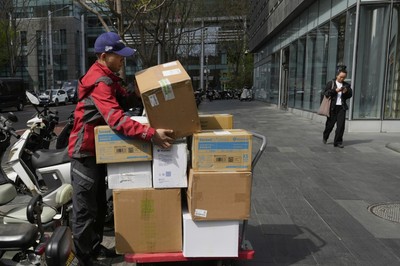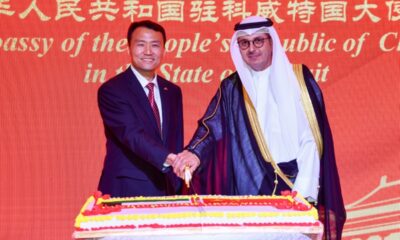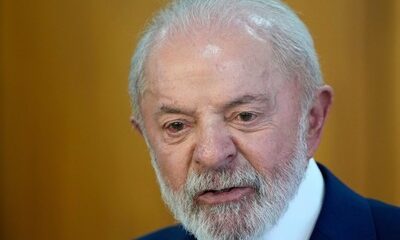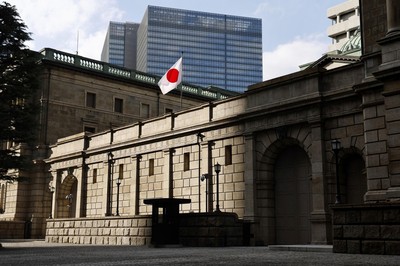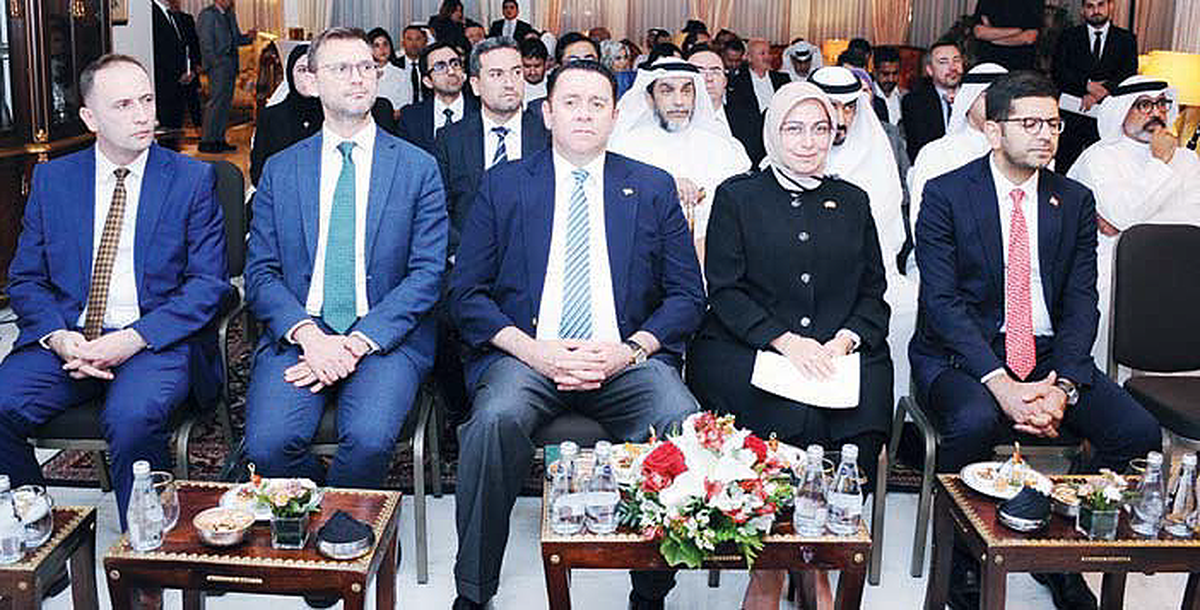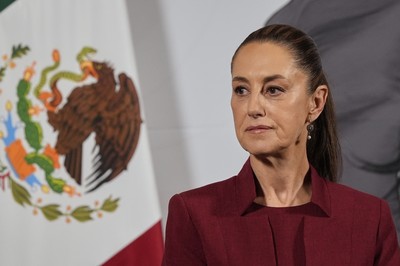BEIJING, April 8, (AP): China said Tuesday it would “fight to the end” and take countermeasures against the United States to safeguard its own interests after President Donald Trump threatened an additional 50% tariff on Chinese imports.
The Commerce Ministry said the U.S.‘s imposition of “so-called ‘reciprocal tariffs’” on China is “completely groundless and is a typical unilateral bullying practice.” China has taken retaliatory tariffs and the ministry hinted in its latest statement that more may be coming.
“The countermeasures China has taken are aimed at safeguarding its sovereignty, security, and development interests, and maintaining the normal international trade order. They are completely legitimate,” the ministry said.
“The U.S. threat to escalate tariffs on China is a mistake on top of a mistake and once again exposes the blackmailing nature of the US. China will never accept this. If the US insists on its own way, China will fight to the end.”
Trump’s threat Monday of additional tariffs on China raised fresh concerns that his drive to rebalance the global economy could intensify a financially destructive trade war. Stock markets from Tokyo to New York have become more unstable as the tariff war worsens.
Trump’s threat came after China said it would retaliate against U.S. tariffs he announced last week.
“If China does not withdraw its 34% increase above their already long-term trading abuses by tomorrow, April 8th, 2025, the United States will impose ADDITIONAL Tariffs on China of 50%, effective April 9th,” Trump wrote on Truth Social.
“Additionally, all talks with China concerning their requested meetings with us will be terminated!”
If Trump implements his new tariffs on Chinese products, U.S. tariffs on Chinese goods would reach a combined 104%. The new taxes would be on top of the 20% tariffs announced as punishment for fentanyl trafficking and his separate 34% tariffs announced last week.
Not only could that increase prices for American consumers, it could also give China an incentive to flood other countries with cheaper goods and seek deeper relationships with other trading partners, particularly the European Union.
Trump frequently bragged about stock market gains during his first term, and the threat of losses on Wall Street was viewed as a potential guardrail on risky economic policies in his second term. But that hasn’t been the case, and Trump has described days of financial pain as necessary.
“I don’t mind going through it because I see a beautiful picture at the end,” he said. Trump officials have frequently appeared on television to make the case for his policies, but none of their explanations has calmed the markets.
The only improvement came from a false report that top economic adviser Kevin Hassett said Trump was considering a pause on all tariffs except for China. Stock prices spiked before the White House denied it was true by calling the post “fake news.”
China is one of the U.S.’s top trading partners, especially for consumer goods, and the tariffs – essentially a tax on imports paid by U.S. companies – will eventually be passed on to the consumer.
Federal Reserve Chair Jerome Powell warned Friday that the tariffs could increase inflation, and he said, “There’s a lot of waiting and seeing going on, including by us,” before any decisions would be made.
European Commission President Ursula von der Leyen said the European Union would focus on trade with other countries besides the United States, saying there are “vast opportunities” elsewhere.
U.S. total goods trade with China were an estimated $582 billion in 2024, making it the top trader in goods with the U.S. The 2024 deficit with China in goods and services trade was between $263 billion and $295 billion.

 Latest News22 hours ago
Latest News22 hours ago
 Politics8 hours ago
Politics8 hours ago
 Business15 hours ago
Business15 hours ago
 Latest News15 hours ago
Latest News15 hours ago
 Latest News13 hours ago
Latest News13 hours ago
 Latest News6 hours ago
Latest News6 hours ago
 Politics5 hours ago
Politics5 hours ago
 Latest News5 hours ago
Latest News5 hours ago
